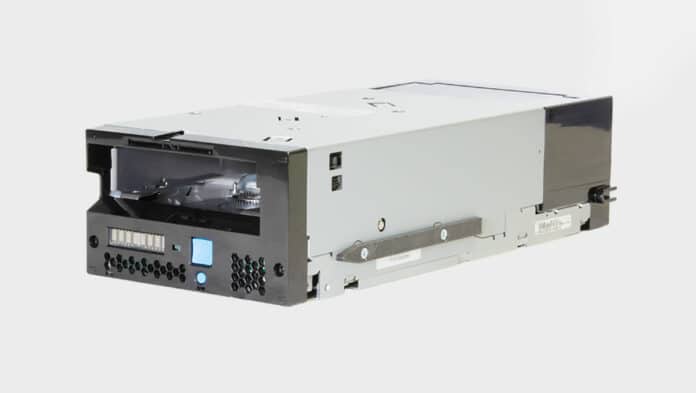With massive data growth, there are many ways to handle and secure all that information. Modern use cases such as big data, cloud, or analytics sometimes require a hyperscale approach to meet business goals cost-effectively.
In addition to data storage, organizations need backup and recovery systems for day-to-day data protection tasks. But even those mechanisms are insufficient to deal with the threat posed by natural disasters like floods, wildfires, or others, along with the increasingly frequent threat of cyber-attacks.
Fujifilm Corporation and IBM have teamed up to develop the TS1170 tape drive, featuring the world’s highest data storage tape capacity.
Fujifilm has achieved this innovative cartridge capability by evolving the technologies developed in previous tape generations. This involved increasing the areal recording density (data that can be recorded per square inch) and the total recording area (the surface area capable of recording data).
The TS1170 tape drive offers impressive native data storage of up to 50TB in a single JF cartridge. It provides ultra-high data storage of up to 150TB per cartridge with 3:1 compression, which means each tape drive can efficiently store up to 150TB of data per JF cartridge.
In addition, tape drives can seamlessly integrate with IBM TS4500 tape libraries to optimize storage management while field upgradeability and Recommended Access Order (RAO) streamline operations.
The new 50TB tape storage system has a 15% longer tape per data cartridge than the previous fifth generation. IBM’s 3592 JF is the company’s sixth-generation tape cartridge. This tape cartridge will host the new 50TB native tape storage system.
It is realized by using a thinner and stronger base film, which supports the magnetic layer. Improved thin-layer coating technology stores a more uniform and smoother tape surface, resulting in an improved signal-to-noise ratio.
Micro hybrid magnetic particles have been newly developed by combining the technology used in next-generation Strontium Ferrite (SrFe) magnetic particles and Barium Ferrite (BaFe) particles currently used in high-capacity data storage tapes. The areal recording density improves significantly due to the reduction in the size of the magnetic particles and the increase in their magnetic properties.
The new 50TB tape storage system is equipped with high-dispersion technology for magnetic particles that prevents the aggregation of individual ultrafine magnetic particles and allows for a more even dispersion of the particles.
The TS1170 tape drive is designed to provide durable, cost-effective data storage to address the problems of increasing data volume, energy costs, and frequent cyber-attacks. It offers a future-proof cyber resilience solution with air-gapped isolation, a powerful defense against cyber threats. This air-gapped isolation helps protect stored data from potential attacks targeting the primary storage environment.
The National Institute of Standards and Technology (NIST) has approved IBM’s new AES-256 encryption, which will protect sensitive information from potential threats and unauthorized access safeguards against cyber threats.
Alistair Symon, Vice President of Storage Systems Development at IBM, says: “The advanced technology in the IBM 3592 JF tape cartridge will enable customers to realize high densities, which facilitates storage cost optimization while maintaining performance and time to data. This is the first tape storage medium with 50TB native capacity. It demonstrates tape’s viability as an optimal choice for data protection, active archives, and long-term retention in scientific data, industrial data collection, and cloud service provider environments.”
The new tape drive uses the linear serpentine recording technique. This data storage tape measures 93mm high, 186mm wide, 467 mm depth, and weighs 5.57 kg.
The TS1170 tape drive allows companies and organizations to maximize capacity and gain security-rich long-term retention for less than the cost of disk or flash solutions.
